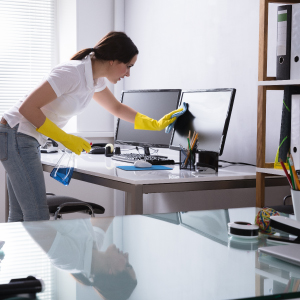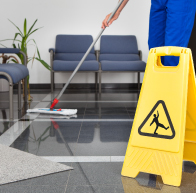NASA has awarded Vestigo Aerospace LLC, a start-up company affiliated with
Purdue University, Indiana, a $125,000 grant to advance the technology they are
developing to help remove debris from Earth orbit.
Experts suggest that over the next 5 years up to 2,600 micro and nanosatellites will be launched into orbit. In addition, there is the potential for thousands to be added to low earth orbit due to plans to build constellations (groups of artificial satellites working together) for commercial use. Once their useful lifetime is complete, spacecraft can remain in orbit for decades, inevitably increasing risk of collision.
The technology uses drag sails which attach to the satellites and space objects as an alternative to conventional propulsion. At the end of their mission, they are deployed to deorbit space objects by slowing them down, as well as for targeted, rather than uncertain, atmospheric re-entry allowing for their continued use or safe disposal.
Right now, there are approximately 1 million objects of space junk sailing around in the earth’s orbit. Around 22,000 are large objects comprising of parts of old rockets and broken and working satellites. These are combined with gear dropped by astronauts and bits of wreckage from satellites that have previously collided which go down to about 1cm in size. And in reality, this is likely to be a conservative estimate as more rockets and satellites are launched every year, further increasing the risk of collisions and the resulting debris.
The reason it matters is that the relatively minor inconvenience of an unreliable weather forecast, or poor Satnav information for us if a satellite is lost, takes on greater significance if the weather forecast can’t tell us of an approaching hurricane or an aeroplane’s navigation system has been affected.
A long-term solution proposed by the Gateway Earth Development Group is to have a space recycling station for redundant satellites and other space refuse fully operational by 2050. If we could repair, repurpose or recycle the satellites and other space junk at a recycling facility within Earth’s orbit, it saves on launch costs and provides the materials for possible construction or even satellite servicing in space.
NASA has awarded Vestigo Aerospace LLC, a start-up company affiliated with Purdue University, Indiana, a $125,000 grant to advance the technology they are developing to help remove debris from Earth orbit.
Experts suggest that over the next 5 years up to 2,600 micro and nanosatellites will be launched into orbit. In addition, there is the potential for thousands to be added to low earth orbit due to plans to build constellations (groups of artificial satellites working together) for commercial use. Once their useful lifetime is complete, spacecraft can remain in orbit for decades, inevitably increasing risk of collision.
The technology uses drag sails which attach to the satellites and space objects as an alternative to conventional propulsion. At the end of their mission, they are deployed to deorbit space objects by slowing them down, as well as for targeted, rather than uncertain, atmospheric re-entry allowing for their continued use or safe disposal.
Right now, there are approximately 1 million objects of space junk sailing around in the earth’s orbit. Around 22,000 are large objects comprising of parts of old rockets and broken and working satellites.
These are combined with gear dropped by astronauts and bits of wreckage from satellites that have previously collided which go down to about 1cm in size. And in reality, this is likely to be a conservative estimate as more rockets and satellites are launched every year, further increasing the risk of collisions and the resulting debris.
The reason it matters is that the relatively minor inconvenience of an unreliable weather forecast, or poor Satnav information for us if a satellite is lost, takes on greater significance if the weather forecast can’t tell us of an approaching hurricane or an aeroplane’s navigation system has been affected.
A long-term solution proposed by the Gateway Earth Development Group is to have a space recycling station for redundant satellites and other space refuse fully operational by 2050. If we could repair, repurpose or recycle the satellites and other space junk at a recycling facility within Earth’s orbit, it saves on launch costs and provides the materials for possible construction or even satellite servicing in space.







